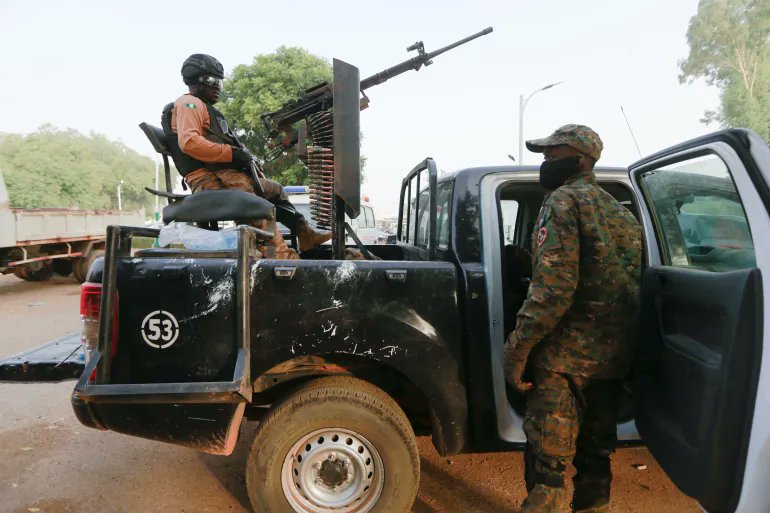Terrorism
Nigerian forces kill 30 gunmen in Katsina after coordinated village attacks
Summary
- Military and police repel large-scale assault in Faskari, Katsina State
- At least 30 attackers killed; six others, including security personnel, also dead
- Incident highlights persistent insecurity and humanitarian crisis in northwest Nigeria
Katsina, Nigeria – Nigerian security forces have killed at least 30 armed assailants following coordinated attacks on several villages in the Faskari Local Government Area of Katsina State. The joint operation, which included ground troops and air support from the Nigerian Air Force, was launched on Wednesday, 9 July, in response to a large-scale assault by so-called bandits the previous evening.
According to Katsina State’s Commissioner for Internal Affairs, Nasir Mua’zu, hundreds of gunmen raided three villages on Tuesday night, continuing a pattern of violence that has destabilised communities across Nigeria’s northwest.
The attackers were met with a swift counter-offensive involving military and police forces, during which dozens were “neutralised” and airstrikes were deployed as the assailants attempted to flee.
Tragically, the operation also resulted in casualties among Nigerian forces and civilians. Three police officers, two soldiers, and one civilian were confirmed dead. Mua’zu praised the bravery of the security forces and reaffirmed the state government’s commitment to working with federal agencies to restore safety in the region.
This latest incident reflects the deepening security crisis in Nigeria’s northwest, where armed groups, often referred to as bandits, have escalated their attacks in recent years. These groups, largely operating from forested areas across Katsina, Zamfara, and Kaduna states, are responsible for mass abductions, killings, and looting, exploiting weak state presence and historical conflicts over land and resources.
In March 2025, nearly 400 people, including schoolchildren, were abducted in Kaduna in a similar wave of violence. The ongoing attacks have displaced over 1.3 million people, with more than 8 million in urgent need of humanitarian assistance in the northwestern and north-central regions.
While the government continues to intensify military operations, including airstrikes and clearance missions, critics have raised concerns over the accuracy of official casualty figures and the risk of civilian harm. Human rights organisations have documented previous cases of civilian deaths during air operations in the region, calling for more precise targeting and accountability.
Nigeria’s broader security landscape remains fraught, with insurgencies in the northeast, separatist-linked violence in the southeast, and rising inter-communal clashes elsewhere.
Experts argue that a military-led approach alone will not end the crisis, urging the government to address root causes such as poverty, youth unemployment, resource competition, and systemic corruption.







